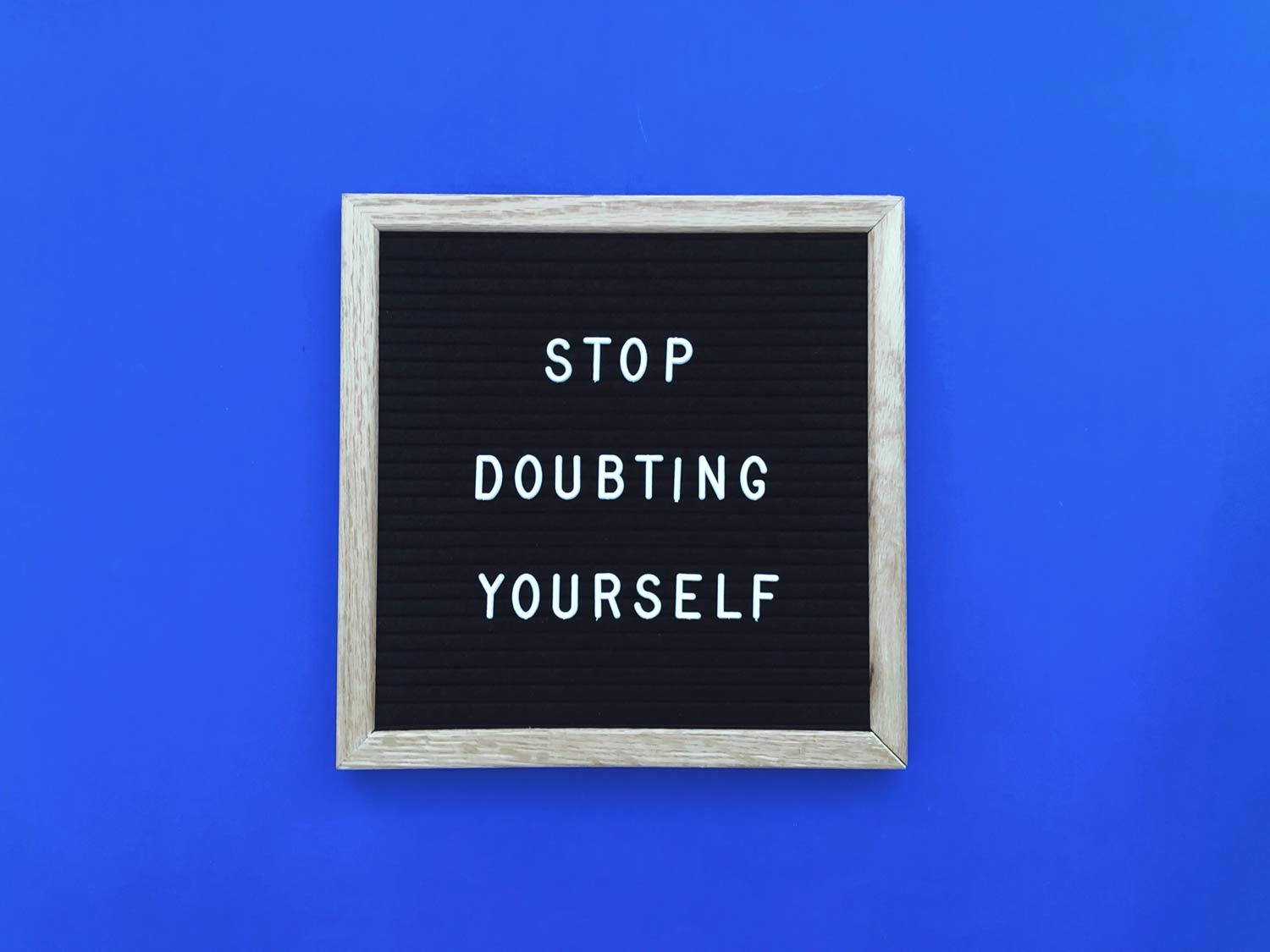Identification Of Imposter Syndrome & The Top 5 Insider Strategies For Dealing With it
As A Founder | Entrepreneur
Series: This article is part of the Founders & Entrepreneurs Wellbeing Series
How often have you explained your achievements away?
I can think of many occasions in my own career when I doubted my capabilities. These feelings of self-doubt often plagued me, although at the time I did not recognize it as “imposter syndrome,” nor understood it.
Walking into a conference room filled with faces I didn’t know, I somehow felt as though I was on a different page. Leading a board meeting or speaking at conferences used to trigger feelings of self-doubt. My feelings had no foundation I later realized. I had all the skills, experience, and expertise needed to run and manage a successful company.
As a founder and entrepreneur, you might also have felt that no matter how many degrees and accomplishments you have, you do not feel suited to your current position. “I’m a fraud!” you think. “I’m not smart enough to run a multi-million-dollar company.”
I get it. Sooner or later, all founders and entrepreneurs’ questions themselves. The key is not overlooking or pushing your feelings under the rug, but to take a moment to reflect as to why you are having these feelings in the first place.
But What Is Imposter Syndrome Exactly?
Imposter syndrome is a psychological phenomenon stemming mostly from one’s personality traits and upbringing, causing one to doubt one’s skills, talents, and achievements. Those who struggle with imposter syndrome tend to have an underlying fear of being seen as a fraud by their co-workers and/or peers.
In the book “The Secret Thoughts of Successful Women: Why Capable People Suffer From the Imposter Syndrome and How to Thrive in Spite of It,” by Dr. Valerie Young – an expert on imposter syndrome – she divides the phenomenon into five categories, as seen below. She based her findings on research done over decades with high achievers.

Perception Becomes Reality
Jim Grasty, a good friend of mine and fellow entrepreneur who has seen and experienced the best and worst of business, emphasizes that as founders we should take a moment to reflect on ‘why’ we are experiencing feelings of self-doubt. “Instead of attributing your success to “luck”, self-evaluation might reveal that your hard work, experience, and your unique intelligence and insight, shaped the success of your business. Frankly, “God’s Will’, or the “Universe” giving you what you deserve (Karma) might be a good reason for your success (or failure). Learning to love yourself and your core beliefs should help to mitigate the need for approval from others and help answer your questions if your “imposter” thoughts are rational. I have found that the concept, “perception becomes reality,” is an actual thing. You don’t have to be the world’s expert on anything, simply exhibit a really good understanding to be the Chief Expert in the room. If this means “fake it ‘till you make it”, then do it. Trust me, it really works.
Your “Inner Critic” should be a valuable ally, not a demon in your head. It can help you get better, not simply crush your every success. There was a Firesign Theatre album “I think We’re All Bozos on this Bus”. It raised the question of all the inner aspects of our being who claimed control during our journey through life (driving our bus). There are many reasons for who might be driving your bus at any particular time, in any specific circumstance, but to a very large extent, we CHOOSE who drives the bus. In my opinion, you should try to choose wisely, with both the heart (emotion) and mind (logic) in agreement.
First, forgive yourself. You cannot try to hide under a blade of grass. Consequences are real. There is a difference between the core feelings of anxiety and motivation. One pulls away, and one pushes toward exceptionalism.”
The Main Causes of Imposter Syndrome &
The Top 5 Insider Strategies For Dealing With It
1 – The Soloist
“No, I can handle it – don’t worry,” has become a standard reply when asked if you need help. Entrepreneurs who prefer to work alone out of fear that their incompetence in a certain area might be found out, fall into the soloist category of imposter syndrome.
Ask yourself this: do you feel you need to do everything yourself and that you don’t need help from anyone?
- The Solution: Handling everything yourself can lead to a high level of stress and a possible meltdown along the road. To prevent this from happening, founders and entrepreneurs must learn to delegate work or accept help from others.
2 – The Natural Genius
Natural geniuses tend to excel in developing and mastering skills faster and more easily than most other people. However, facing a task that challenges them tends to lead to feelings of shame and disappointment. They have exceptionally high expectations of themselves and believe they should excel in tasks the first time they try them. Not being able to fulfil these expectations triggers imposter syndrome, leaving them feeling embarrassed by their lack of ability.
You fall into this category if you are used to easily reaching your goals and quickly learning new skills, but you feel uncomfortable doing tasks you do not excel at, with your confidence plummeting as a result.
- The Solution: Founders and entrepreneurs who fall into this imposter syndrome category must realize that they do not have to reach impossible heights without effort. Understand that improving oneself is a lifelong process.
3 - The Expert
A finished task does not satisfy the experts; they need to have as much knowledge and experience as they possibly can. They do not measure themselves by how fast they have finished something but by how many tasks they can accomplish. (as well as the difficulty of the tasks they are able to finish). Experts fear being seen as incompetent or uninformed.
If you struggle to accept positions or assignments for which you do not have every possible educational prerequisite, if you are always working on improving yourself, or if you feel that you don’t know enough, then you might be experiencing imposter syndrome.
- The Solution: Jim Grasty provides the following solution to founders struggling with the expert type imposter syndrome. “One thing that I believe is that risk avoidance is sometimes an attempt to ward off disappointment. I get that, and it is something to watch out for. The problem is that preventing risk precludes “surprise”, and that surprise is often the most pleasurable experience we can imagine. Surprises end up being the markers and highlights for a life well-lived. We have to run the risk. We have to not only NOT be shamed by perceived inadequacy, not knowing, and all those critical demon thoughts, but truly understand that it is OKAY. I’ve read that being deeply worried that you are an imposter is actually a form of hubris, of arrogance, that others are too stupid to know that you’re a fake. That only you are smart enough to see. Being vulnerable can lead to wonderful surprises.
You don’t have to feel confident to act confident. Smart people, dumb people, and everyone in between, do it every day. How hard is it to simply “be?” Humbly be yourself. But be that best expression of yourself so that you can achieve your dreams, and then, be PROUD of your achievements. Be happy that you are who you are, that you really know what you know, that you will continue to learn passionately. Know that nobody can take that away from you except yourself. If we can practice honesty with ourselves, we can demonstrate our true exceptionalism to others without doubt or shame, and they will accept us and love us for who we are and what we can contribute. Every. Single. Time.”
4 – The Superwoman / Man
Founders or entrepreneurs who fall into this category often excel at their work because they push themselves so much harder than their employees, colleagues, or peers. They hide their insecurities by overloading themselves with work, which can lead to burnout and/or founder’s fatigue and is detrimental to their relationships and mental health.
If you tend to stay much later than your employees, are stressed about work when you should be enjoying downtime, or have sacrificed your hobbies for more work, you could be struggling with the superwoman or superman category of imposter syndrome.
- The Solution: If you feel you fall into this category, chances are you are a workaholic, and the stress of it is affecting both your mental and physical wellbeing. This impostor syndrome category usually stems from an addiction to being validated by others, so train yourself to not need validation from others.

5 – The Perfectionist
Perfectionists are known for their high expectations, mainly of themselves. The failure to fulfill their expectations leads to self-doubt and the feeling of not being enough. In some cases, perfectionism leads to entrepreneurs wanting to do everything themselves while at the same time doubting their ability to achieve the required standard of work.
If you are not sure whether this applies to you, ask yourself whether you tend to micromanage projects or struggle to delegate tasks. If the project does not reach the level you anticipated, do you blame yourself or feel unqualified for your position?
- The Solution: Founders and entrepreneurs who struggle with perfectionist imposter syndrome need to learn to see mistakes as part of the learning process. For their own wellbeing, they need to practice carrying out their plans instead of merely planning until the “perfect time” comes, because chances are a perfect time will never come.
Whichever category you might find yourself in, you are not the only one struggling with these feelings. According to various studies, around 80% of people experience imposter syndrome. Understanding which category of imposter syndrome you fall into and what causes doubts within yourself, will help you apply the appropriate solutions.

Do not hesitate to ask for help. Talk to others who might also be struggling. Sharing your experiences and getting feedback from others can help you create realistic expectations of yourself while you help others create similar expectations of themselves. It can also help to share your negative thoughts with others, which can be key to forcing yourself to find positive thoughts instead.
Remember that it is important to celebrate your latest achievements, recall your past successes, and take into account positive feedback from others when given sincerely.
Enjoyed this article?
Let us know in the comments below. We would love to hear from you.


